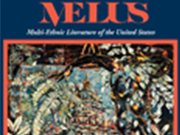Gloria Anzaldúa was a prolific writer and, as Chela Sandoval phrased it, a “theorist of hope” (xiii) whose visions for future transformations were bold and always already present in her own theory and practice of consciousness. Her inclusive approach to subjectivity radically broke with binary thinking and identification by exclusion. Anzaldúa was simultaneously a Chicana, queer, poet, feminist, writer, theorist, spiritual activist, and more. Her own experiences and theories fully embrace the fact that ambivalence is inevitable when dealing with questions of subjectivity. However, at the same time, Anzaldúa recognizes the difficulties of living this ambivalence. The famous mestiza consciousness is only the starting point in her work. This essay traces the shifts, similarities, and differences in Anzaldúa’s vision for a transformative subjectivity from her mestiza consciousness to her latest concept of becoming a nepantlera. Nepantla is a Nahuatl word for the in-between, and Anzaldúa adopts the nepantla as the precarious but only possible home for a nepantlera subjectivity (“now let us shift” 574).
These theories of subjectivity are also transformational strategies that start with and transcend individual change, creating new communities and worlds if enough people participate. These individual and collective changes may materialize through the power of language to rename and rewrite identities and personal, mythical, and spiritual histories—for example, with regard to one’s location in the conventional ethnic frame of reference or within heteronormativity. This essay analyzes the mestiza consciousness and becoming a nepantlera in their function of destabilizing and overcoming the tremendous influence of ethnic frames of reference on subjectivization. Both of these alternative, self-chosen subjectivities are located in the in-between spaces. They refuse to view and practice identities through the conventional categories of gender, race, ethnicity, class, age, or sexuality.
Nevertheless, even though Anzaldúa’s visions create alternative identity locations that potentially transform realities through literary …
